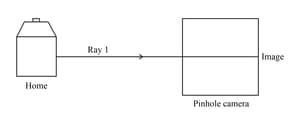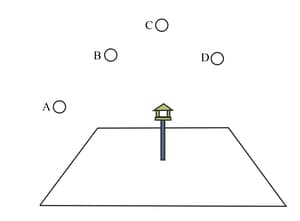Aidan Gill, Heidi Foxford and, Dorothy Warren Solutions for Chapter: Light, Exercise 1: Exercise 1
Aidan Gill Science Solutions for Exercise - Aidan Gill, Heidi Foxford and, Dorothy Warren Solutions for Chapter: Light, Exercise 1: Exercise 1
Attempt the free practice questions on Chapter 7: Light, Exercise 1: Exercise 1 with hints and solutions to strengthen your understanding. Cambridge Lower Secondary Science Stage 8 : Workbook solutions are prepared by Experienced Embibe Experts.
Questions from Aidan Gill, Heidi Foxford and, Dorothy Warren Solutions for Chapter: Light, Exercise 1: Exercise 1 with Hints & Solutions
Complete the sentences using from words from the list.
(object/ shadow/ image/ straight/ curved/ screen)
Light travels in _____ lines. We can show this by shining a light on an _____ placed in front of a _____. We see that a _____ forms.
Anastasia starts drawing a ray diagram to show how the image is formed in her pin hole camera. Complete Anastasia's diagram by adding two more rays that show how the image is different from real home.

Anastasia uses a pinhole camera to form an image of her home. The diagram shows four possible images. Which is the correct image? Choose the best image
Pierre and Gabriella are on holiday. They go to see a castle. They walk in different directions and each decides to take a photograph of the castle. The diagram shows where they stand as they take their photographs.

Think about light and shadows. Who do you think will take the better photograph? Explain your answer.
If the night is clear and there is a full Moon, sometimes you can see shadows cast by the light from the Moon. Explain why we can see the Moon at night.
If the night is clear and there is a full Moon, sometimes you can see shadows cast by the light from the Moon. The diagram shows the position of the Moon at four different times of the night. At which position will the Moon cast the shortest shadows? Choose the best answer.

Look at the diagram. It shows a sundial, which can be used to tell the time. Explain how we can tell the time of day using a sundial.

The Samrat Yantra at the Jaipur Observatory is a sundial that is tall. The shadow from the Samrat Yantra moves at about the width of a human hand each minute. Describe an experiment you could use to work out exactly how quickly the shadow moves.
